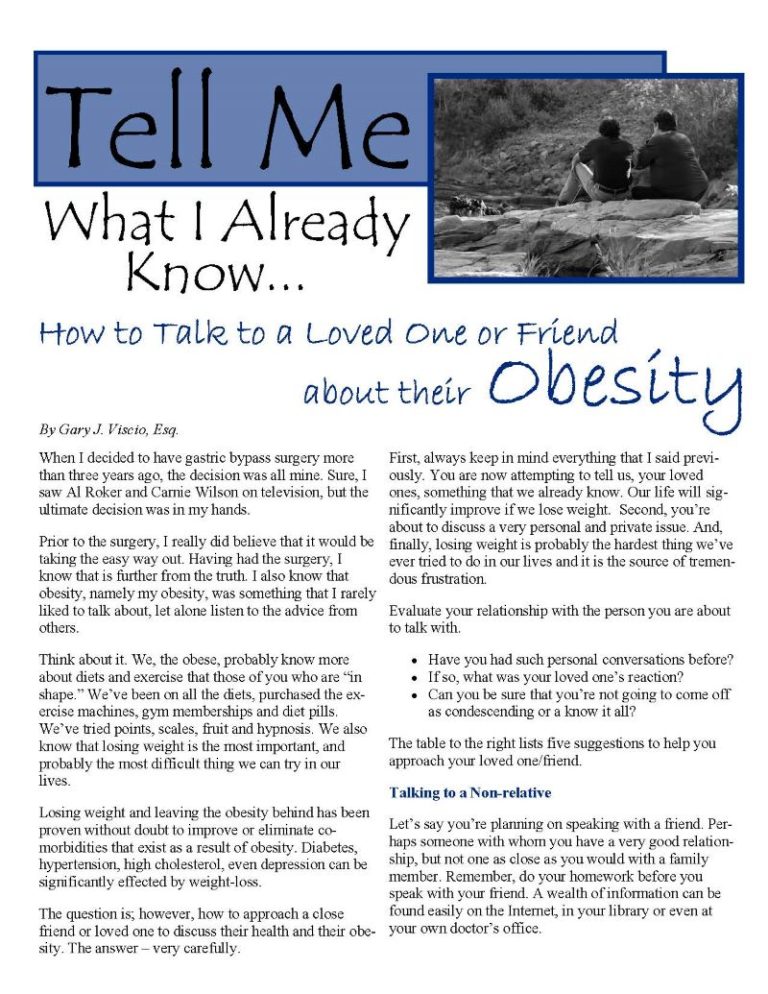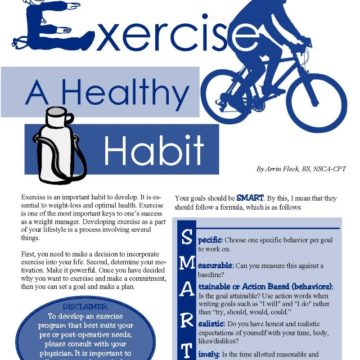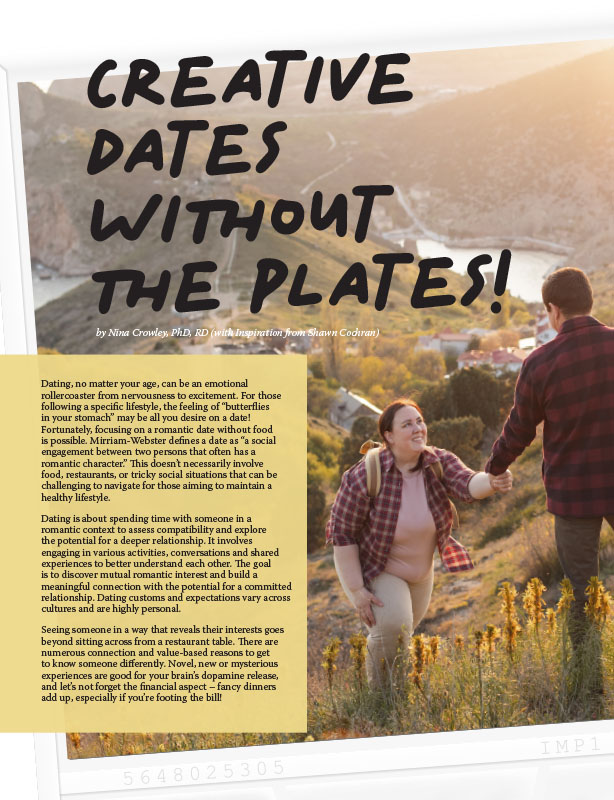Tell Me What I Already Know…How to Talk to a Loved One or Friend about their Obesity


By Gary J. Viscio, Esq.
Fall 2006
When I decided to have gastric bypass surgery more than three years ago, the decision was all mine. Sure, I saw Al Roker and Carnie Wilson on television, but the ultimate decision was in my hands.
Prior to the surgery, I really did believe that it would be taking the easy way out. Having had the surgery, I know that is further from the truth. I also know that obesity, namely my obesity, was something that I rarely liked to talk about, let alone listen to the advice from others.
Think about it. Those with obesity probably know more about diets and exercise that those of you who are “in shape.” We’ve been on all the diets, purchased the exercise machines, gym memberships and diet pills. We’ve tried points, scales, fruit and hypnosis. We also know that losing weight is the most important, and probably the most difficult thing we can try in our lives.
Losing weight and leaving the obesity behind has been proven without doubt to improve or eliminate co-morbidities that exist as a result of obesity. Diabetes, hypertension, high cholesterol, even depression can be significantly effected by weight-loss.
The question is; however, how to approach a close friend or loved one to discuss their health and their obesity. The answer – very carefully.
First, always keep in mind everything that I said previously. You are now attempting to tell us, your loved ones, something that we already know. Our life will significantly improve if we lose weight. Second, you’re about to discuss a very personal and private issue. And, finally, losing weight is probably the hardest thing we’ve ever tried to do in our lives and it is the source of tremendous frustration.
Evaluate your relationship with the person you are about to talk with.
- Have you had such personal conversations before?
- If so, what was your loved one’s reaction?
- Can you be sure that you’re not going to come off as condescending or a know it all?
|
Five Suggestions When Talking to 1. Know the Boundaries |
Talking to a Non-relative
Let’s say you’re planning on speaking with a friend. Perhaps someone with whom you have a very good relationship, but not one as close as you would with a family member. Remember, do your homework before you speak with your friend. A wealth of information can be found easily on the Internet, in your library or even at your own doctor’s office.
Before you approach your friend, imagine the situation if it were reversed. Would you appreciate a friend’s advice or would you find it intrusive or uncomfortable? Treat your friend as you would want to be treated and approach them in that way. Let them know that you are concerned and not judging them. Assure them that you will be as helpful as possible. Even if you cannot attend support meetings with them, an open ear is always appreciated. Trust me, we all can use as much support as possible, even if it is a telephone call.
Above all, remember that only your loved one or friend can make the final decision. No diet, exercise routine, surgery or program is going to help if we don’t choose to help ourselves. And, that’s your goal… to get us to help ourselves. With your help, success is a real possibility.
About the Author:
Gary J. Viscio, Esq. is an attorney who specializes in appeals for denials of obesity surgery, reimbursement and coverage, as well as obesity discrimination. In July 2003, he underwent weight-loss surgery, and to date has lost more than 160 pounds. He is a member of the Obesity Action Coalition Advisory Board, Obesity Help Advisory Panel and the Board of Directors of the National Spinal Cord Injury Association. He has handled insurance litigation matters for nearly 15 years.
by Robyn Pashby, PhD Winter 2024 “No one is ever going to date you if you don’t…
Read Articleby Kendall Griffey, OAC Communications Coordinator Winter 2024 The Obesity Action Coalition’s 12th annual Your Weight Matters…
Read Articleby Nina Crowley, PhD, RD (with Inspiration from Shawn Cochran) Winter 2024 Dating, no matter your age,…
Read Article








